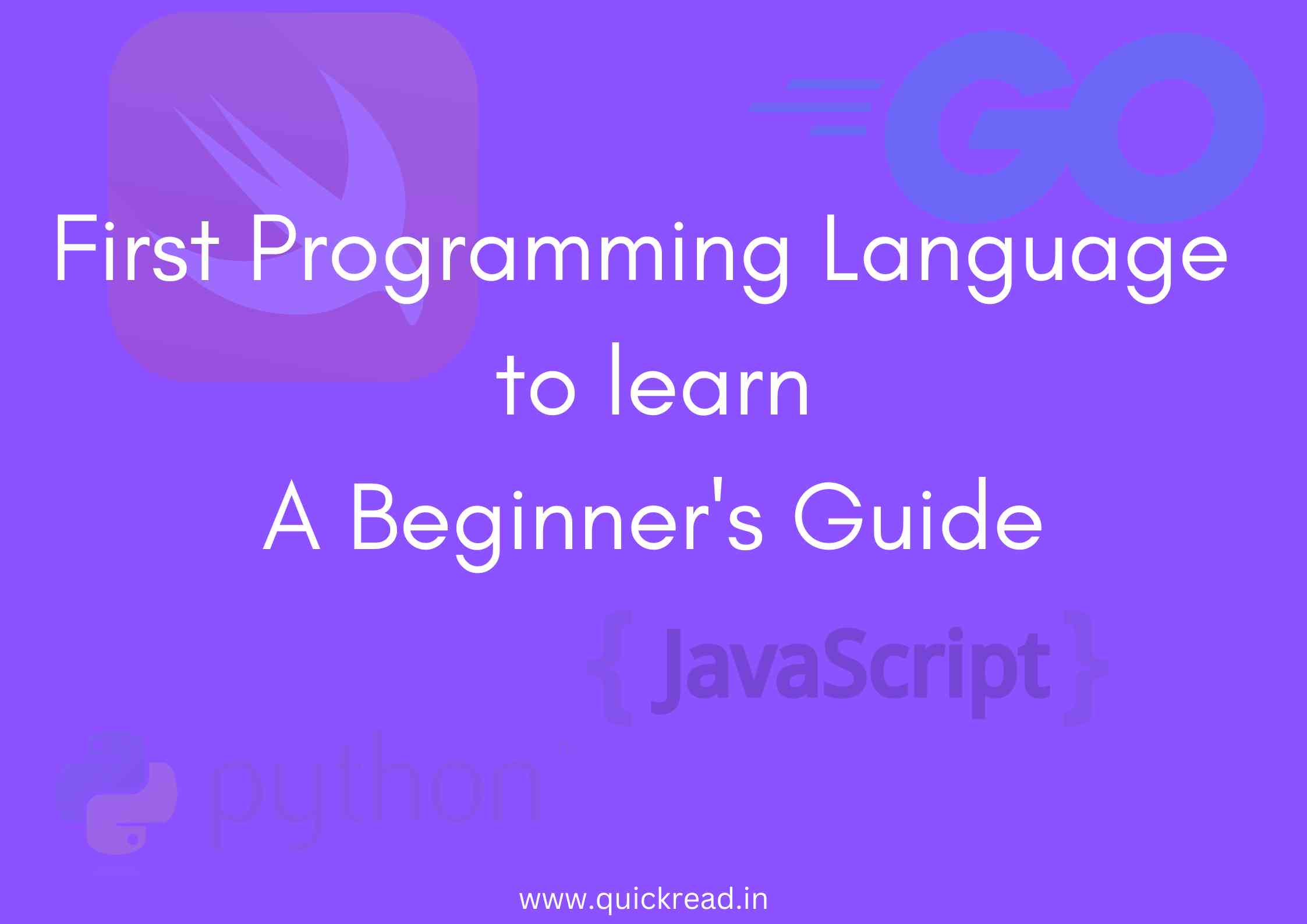Introduction
With so many programming languages to choose from, it can be daunting for beginners to decide where to start. In this guide, we’ll survey the most versatile, in-demand and beginner-friendly languages – so you can pick the right first language tailored to your goals.
We’ll look at languages like Python, JavaScript, Java, C#, Go and more. You’ll learn the core strengths of each along with examples of what you can build. Let’s get started picking your first programming language!
How to Choose Your First Programming Language to learn
Consider these factors when selecting your starter language:
Your goals – Languages are better suited for certain domains like web dev, data science, or backend systems. Have an end goal in mind.
In-demand skills – Consider what languages are in high demand in your region that offer good career prospects.
Difficulty level – Some languages are easier for total beginners to ramp up on quickly.
Community & resources – Look for languages with abundant tutorials, forums, and development tools.
Matching your first language to your objective and support ecosystem is key for success.
Best Programming Languages to learn
Python for beginners
Python is the most common recommended starter language today due to its straightforward syntax, vast capabilities, and incredible ecosystem.
Good for – backend services, data science, scientific computing, DevOps
Key strengths – simple readable code, huge community and libraries, versatile across applications
You can build all kinds of applications from games to machine learning models using Python. It’s also ubiquitous in fields like DevOps and cybersecurity. Python is perfect for launching into coding while keeping doors open to many domains.
JavaScript for beginners
JavaScript is the core language of the web perfect for starting front end development.
Good for – front end web, mobile apps, full stack web dev
Key strengths – powers dynamic websites, integrated with browsers, huge web ecosystem
With JavaScript, you can begin making interactive web pages and grow into frameworks like React for sophisticated web apps. It unlocks front end opportunities from HTML/CSS to JavaScript frameworks.
Go for beginners
Go is a modern systems programming language making backend development simple.
Good for – cloud services, distributed systems, DevOps, networking
Key strengths – combines simplicity with performance, ultra-fast compilation, built-in concurrency
Go is ideal for building web services with great performance leveraging Go’s speed, networking capabilities and scalability. It’s simple to pick up with a focus on productivity and speed.
Java
Java powers large enterprise systems thanks to its maturity, portability, and massive ecosystem.
Good for – enterprise backend systems, Android apps, databases
Key strengths – mature language with huge usage, excellent community resources, JVM portability
You can build maintainable backend services, scalable web apps, and Android apps with Java. It provides a foundation for large enterprise software and jobs requiring Java.
C#
C# combines simplicity similar to Java with the power of the .NET ecosystem making it great for new Windows developers.
Good for – Windows development, game dev, mobile dev
Key strengths – simplified C-like syntax, seamless Windows integration, feature rich
You can use C# to build games in Unity, create mobile apps with Xamarin, or develop business applications using .NET Framework. It’s beginner friendly while allowing access to advanced .NET libraries.
Ruby
Ruby’s elegance and expressiveness makes it one of the easiest languages to learn while providing web superpowers.
Good for – backend web, scripting, DevOps
Key strengths – beautiful syntax, programmer happiness, huge web ecosystem via Rails
Ruby is great for starting dynamic web development with frameworks like Ruby on Rails. The language reads smoothly like English helping you learn through immense libraries.
Swift
Swift powers next-gen iOS apps with a friendly syntax and advanced features.
Good for – iOS apps, macOS, game dev
Key strengths – modern language tuned for performance and safety, seamless iOS integration
Swift helps you tap Apple’s ecosystem to build sleek iOS, macOS, watchOS and tvOS apps. It combines friendliness for beginners with powerful capabilities needed for app development.
Kotlin
Kotlin is an expressive JVM language perfect for beginners looking to build Android apps or explore functional programming.
Good for – Android development, microservices, functional programming
Key strengths – concise syntax, integrates with Java, built-in safety features
Kotlin is an excellent choice for diving into mobile development on Android. It reduces verbosity and adds safety compared to Java.
Conclusion
Hopefully this guide has helped beginners pick a great first language! Focus on your end goals and what opportunities you want to open up.
Python and JavaScript make ideal starter languages for their simplicity and ability to build all kinds of applications from data science to web development.
But explore languages like Go, Java, C# or Swift if you have specific platforms or domains in mind. The most important thing is choosing a language fitting your ambitions that provides a solid learning foundation on which to build a bright programming future!
Frequently Asked Questions
Q: Should total beginners start with web development or lower level languages?
A: For most beginners, higher level scripting languages that allow building usable applications are recommended over lower level options.
Q: Which languages are in highest demand from employers currently?
A: Python, JavaScript, Java and Go lead demand, with languages like C++ and C# also sought after. Review job listings in your area.
Q: How long does it take to learn the first programming language?
A: Expect at least 2-3 months of consistent practice to get comfortable. But the journey never ends! Skills grow through applying languages to real projects.
Q: Should I focus solely on one language or learn multiple at once?
A: Start with one language to avoid confusion. But once comfortable, continuing to expand your language repertoire is great for opportunities.
Q: Is web development a good starting goal for beginners?
A: Yes – web projects allow instantly tangible results. Front end skills like HTML, CSS, JavaScript and frameworks provide valuable starting capabilities.


